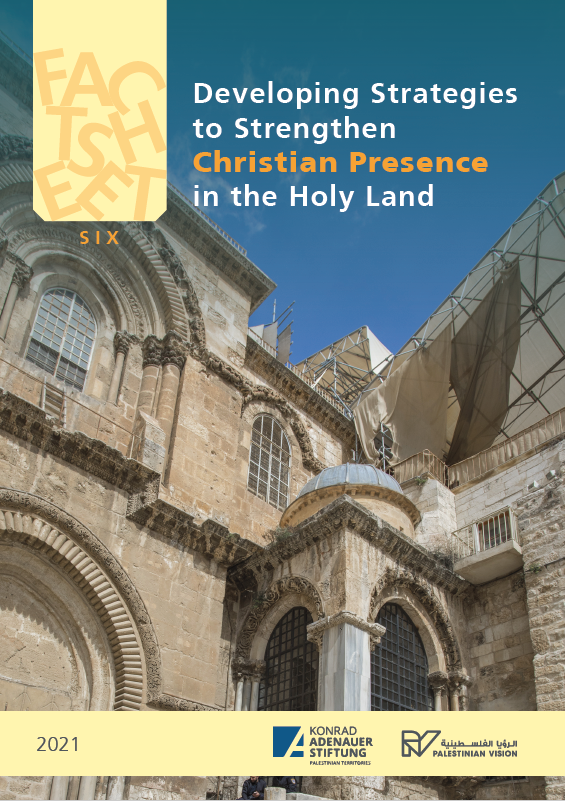أبحاث

أبحاث
ديسمبر 17, 2022
أبحاث
ديسمبر 17, 2022Publication Title
INTRODUCTION
Churches and their related organizations play an important role in providing assistance and support to the Palestinian community through education, social services, health, humanitarian aid, development, cultural centers, employment and housing. As a result of this extensive support, Church Related Organizations (CRO’s) have become the third largest employer in Palestine. This assistance has helped the Palestinian community, including both Muslims and Christians, to overcome economic difficulties that the Palestinian people have experienced since the Nakba in 1948. The Church’s mission has been clear in providing assistance to the Palestinian people, including that it has endeavored to reduce emigration out of the country by the Palestinian Christian community. Unfortunately, despite all the power and services that the Church and CRO’s continue to provide, these efforts have not sufficed to prevent a decline in the number of Palestinian Christians residing in the Holy Land. For many years, Palestinian Christians have been concerned with several key issues that threaten their continued existence in the Holy Land. These include, but are not limited to, the unstable political environment, poor economic conditions that have been exacerbated by COVID-19, religious challenges, as well as church strategies regarding local Christians.3 It does not suffice for the Church merely to save itself, however. Palestinian Christians make a valuable contribution to the fabric of Palestinian society and its rich heritage. A well-coordinated and strategic approach is now needed to safeguard their future in Palestine, alongside other religions of the Palestinian people.
Purpose of strategic planning
The importance of strategic planning is not new. There are many examples from the Bible that illustrate strategic thinking, planning and implementation in action, for example. Strategic planning is a process that helps focus on aligning available collective resources to best take advantage of opportunities and protect against risks. The purpose is to formulate a concrete strategic plan based on a clear vision and mission that can be translated into an executable strategic program of tangible activities that focuses on strengthening the Christian presence in the Holy Land. This approach will meaningfully contribute toward maintaining and preserving the local Christian communities and congregations in the Holy Land, as well as to strengthening the Church as an entity based on a single and unified Palestinian community. For many years, the Church and Holy Land Palestinian Christians have been concerned about their continued presence as their community has dwindled in size. It is now time for the churches, Church Related Organizations (CROs) and the local Christian community to join forces with other external partners. Together, and based on concrete research and a joint strategic plan, they should adopt a range of new approaches to strengthen Holy Land Christian presence and identity, as well as to halt and reverse Christian community emigration from the Holy Land. read more...

